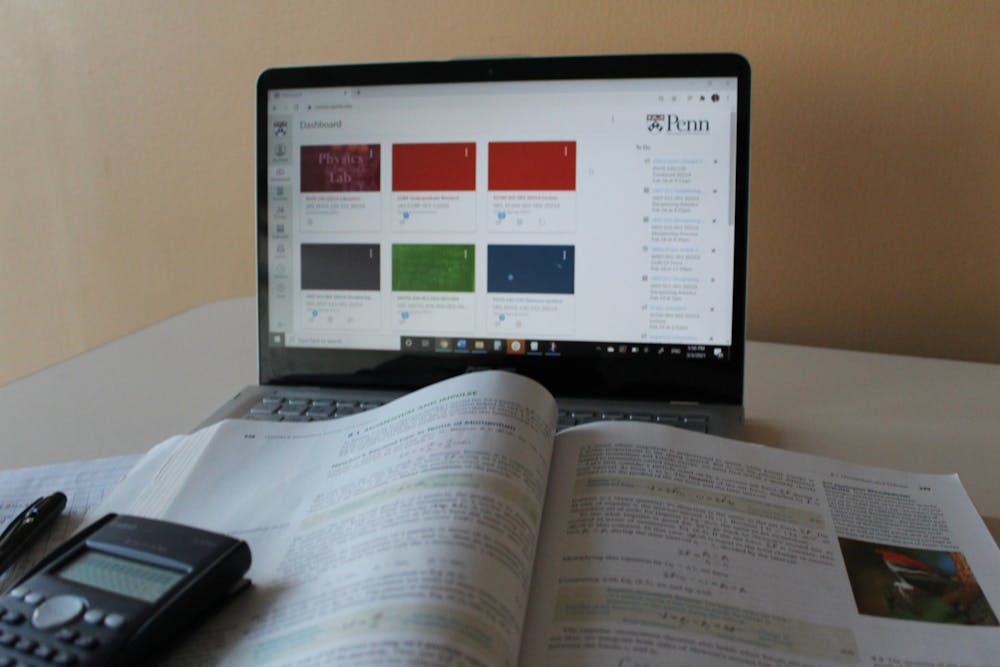
Remember the days of sitting in a lecture hall spaced out from your classmates, filled with anxiety and dread? Of course, sitting far away from one another then had nothing to do with social distancing; it was simply midterm and finals seasons. Thinking back to one year ago, I am flooded with memories of cramming insignificant details into my brain moments before entering an exam room, eager to write them down on the margins of the paper as soon as the test began. As I struggled to remember authors of academic papers on the values and downfalls of the Nordic Model of a welfare state, I was plagued with one question: why do I need to memorize this? The shift to online school radically changed the administration of education, including the way exams are given. Though many exams are still timed, the pandemic has forced a widespread open-book test policy. Looking to the post-pandemic world, professors should continue to offer exams this way.
What does the rote memorization of facts do to benefit the student? Back when open-book exams were still rare, closed-book exams seemed designed to magnify stress levels. With a closed-book exam, it was not enough to be able to apply concepts; students were required to engage in the rote memorization of minuscule facts mentioned in passing during lectures. Speaking from experience, the cloud of worry over whether one seemingly insignificant detail would make an appearance on a test plagued my studying experience. Content heavy, memorization-dependent exams left me questioning the purpose of exams, a question that undoubtedly many have wondered about too. Tests in the past felt less like they were genuinely meant to test our knowledge and ability to apply concepts and more like tricks. At an institution like Penn, I believe the student body does not need to prove that they are capable of memorizing every last detail of a lecture or reading.
From a mental health perspective, open-book tests could alleviate some of the existing stress problems on campus. According to a study reported in Psychology Today, about 57% of college-aged women and 40% of college-aged men faced anxiety in 2013. The same study found that 33% of college-aged women and 27% of college-aged men reported feeling so depressed it was difficult to function. At Penn, the student body consistently grapples with addressing mental health issues. “Penn face,” a term coined for the calm facade many Penn students present despite facing depression, anxiety, and other mental health issues, represents the challenge of creating positive mental health change. Mental health on campus is clearly a crisis begging to be seriously addressed. Some of the mental health issues raised here can be exacerbated by the high stress nature of closed-book memorization exams, creating a feeling of helplessness as students battle the test anxiety associated with memorization.
In the past, the stress and anxiety of closed-book exams prompted students to resort to cheating. College senior and former President of the University Honor Council Jesse Liu recalls that “a lot of the academic misconduct cases are whenever you’re in that final hour, the greatest hour of stress. Oftentimes systemic cheating is not the main problem. The main problem is people who generally follow the regulations, but when they get super stressed or backed into a corner and don’t feel like they have an option, they end up cheating.” With open-book testing, the pandemic magnified a potential solution to mitigate not only some of the mental health effects of test-induced anxiety but also to reduce incentives to cheat. If we can reduce the need to remember every last morsel of information, maybe students can have the opportunity to enjoy learning rather than stress.
Ultimately, Penn is supposed to prepare students for the “real world.” I doubt that one day my boss will come into my office, take away all of my resources, hand me a pen and paper, and say “you have 50 minutes to answer 30 multiple choice questions on the artist, year, and medium associated with these works of art.” Other than familiarity with deadlines and time pressure which is still fostered by open-book tests, rote memorization tests are generally not reflections of what life is like in the workforce.
Society continues to pepper the phrase “a new normal” into its daily dialogue, but Penn professors can put this into practice. The “new normal” of open book tests does not necessarily need to end when classrooms reopen. Instead, I implore professors to keep this formatting and the administration to encourage this change. Let’s prepare students for the real world, without the undue burden of test anxiety and with a whole lot less memorization.
ISABELLA GLASSMAN is a College sophomore studying philosophy, politics, and economics from Suffern, N.Y. Her email is iglass@sas.upenn.edu.
The Daily Pennsylvanian is an independent, student-run newspaper. Please consider making a donation to support the coverage that shapes the University. Your generosity ensures a future of strong journalism at Penn.
Donate







